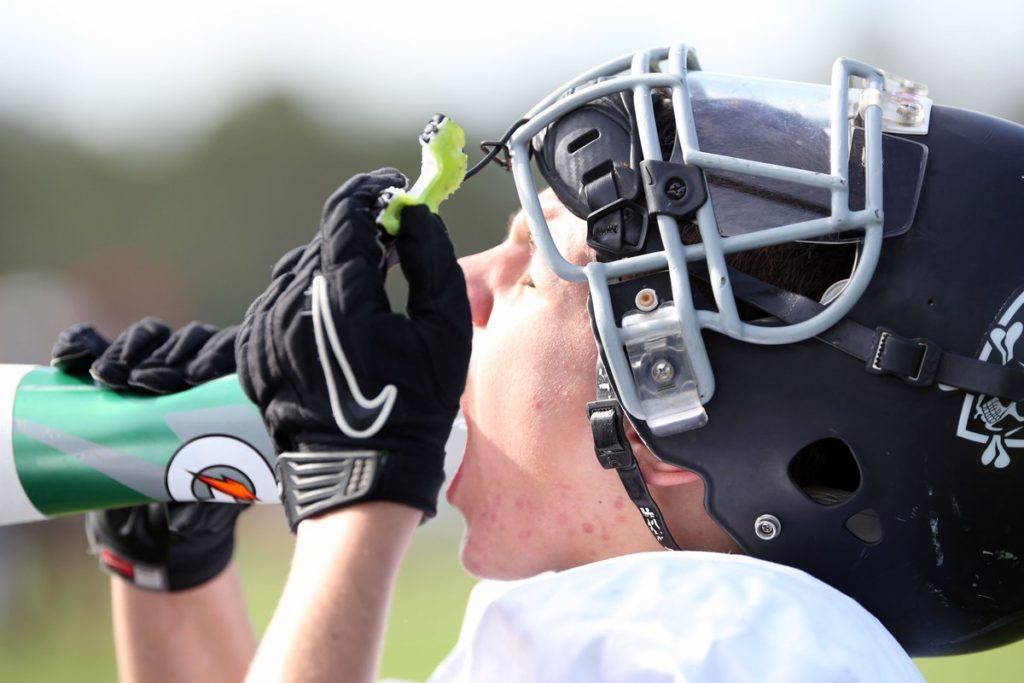A New Pop Warner Season Means NEW Hydration Reminders
May 24, 2017

August 1 is right around the corner. We as a association should already be preparing our children for the grind of football and cheer. This includes increasing water intake all day, analyzing nutritional input, getting the kids out in the heat of summer and hopefully getting them some conditioning done in advance. If you do not know how to help your children, there are many references that can help you. My corner on this website has some good info. A great website that has plenty of info is USA Football. They also have an app that is free in the App Store for iOS devices. (Not sure on android). Please get started now. We need to be proactive with this for the safety of our children !
Facts and Figures For Hydration of an Athlete
Making sure players are staying hydrated is a safety practice that all involved need to be cognizant of
- Along with Tackling, Blocking and Stunting, Proper Hydration is a vital fundamental that youth coaches need to stress to young athletes.
- Dehydration of 1-2 %of body weight can affect performance
- Dehydration of > 3% of body weight can disturb physiological function and increase risk of developing heat cramps, heat exhaustion and heat stroke
What is taking place in the body of a dehydrated athlete ?
- The main process of fluid loss is sweating which is critical for maintaining body temperature
- 80% of heat loss is done through sweating on a humid day
- 98% of heat loss is done through sweating on a dry day
- Not balancing fluid intake with fluid loss is the primary reason athletes get dehydrated
What are the signs and symptoms of dehydration we should be aware of ?
- Symptoms generally worsen as dehydration continues
- Thirst and muscle discomfort
- Flushed skin, fatigue and muscle cramps
- Dizzy, headaches, vomiting and chills
What can occur as a result of these symptoms of dehydration ?
- Rise in core body temperature
- increased stress on cardiovascular system making the heart work harder
- blood becomes thicker which makes it harder to deliver oxygen
- time to reach exhaustion is decreased dramatically
- an increase in perception of effort to do the same task in experienced
When is it the most important for athletes to consume liquids- before or during exercise ?
- Hydration needs to be the focus of athletes throughout the day
- Monitor your urine : urine too dark or odorous, drink more. Clear and without odor, you are hydrated
- 7 % of athletes show up at practice or games dehydrated
- During exercise, drink to match your water losses
- Don’t forget, dehydration can set in after exercise too.
- Bottom line is: drink before, during and after all sports related exercise and let urine output and color be your guide
Sports drinks versus Water
- Water should be the mainstay of your hydration
- Sports drinks do encourage you to drink more because of salt, sugar and taste
- Salt and electrolytes help with faster absorption of fluid
- Carbohydrates give the body an energy boost that is readily available upon drinking
- A tip to follow is that water is better for before and during and sports drinks are better for after

